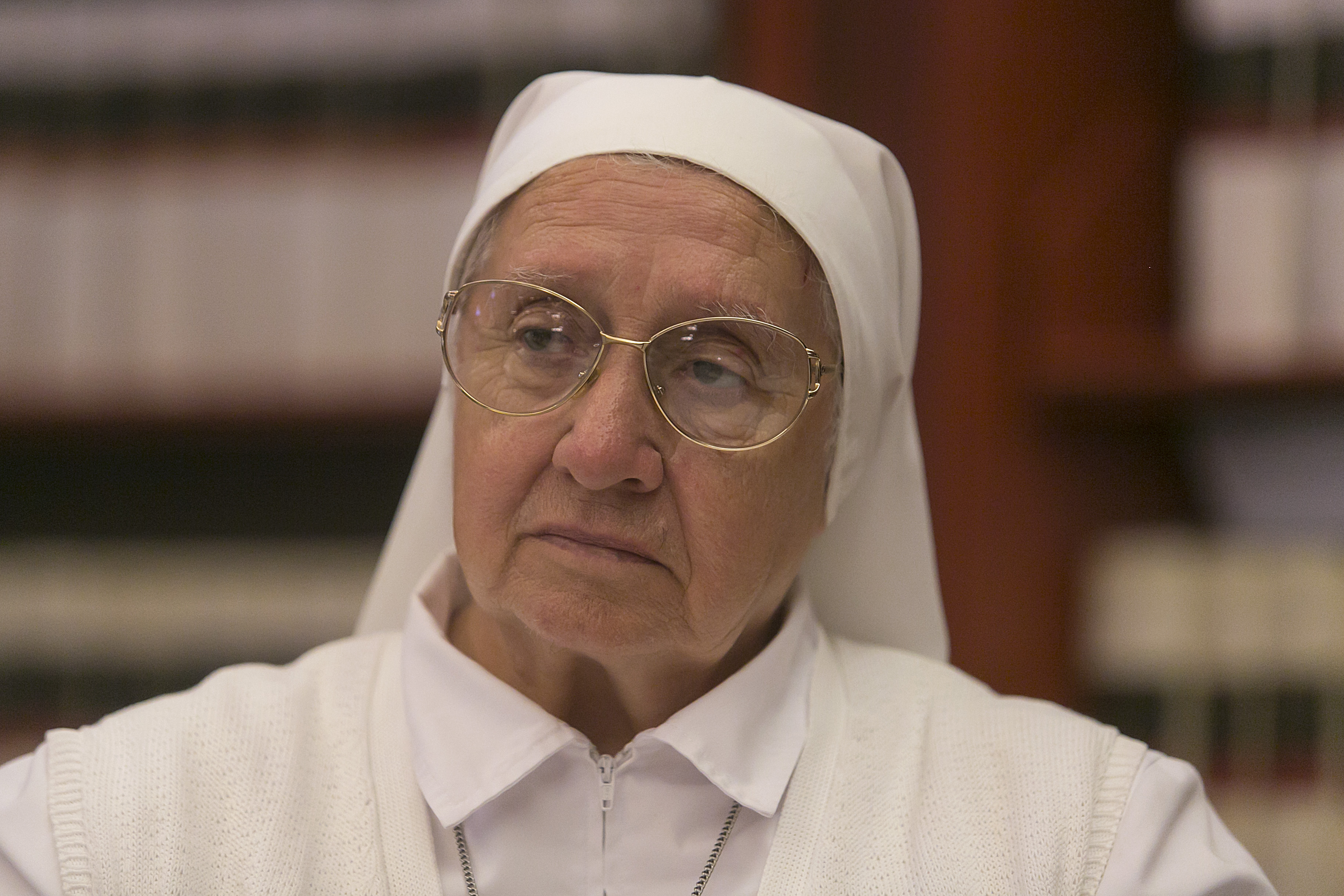III International Day of Prayer and Awareness
The International Day of Prayer and Awareness Against Human Trafficking, established by Pope Francis in 2015, in being celebrated by Churches worldwide. Several initiatives were held in Italy, many of which promoted by women religious, on the front line of the fight against trafficking of women. Sister Eugenia Bonetti, Consolation Missionary, has been combating this phenomenon in Rome for the past twenty years

As many as 50 to 70 thousand young women in Italy are victims of trafficking and forced into prostitution. It is an ever-increasing, evolving phenomenon. There is a growth in the demand from “clients”, of all ages and social classes, which results in the offer of “disposable” young women at increasingly lower prices, “up to 10 euro.” “12 thousand underage Nigerian girls arrived in Italy in the last few months”, denounced Sister Eugenia Bonetti, Consolation Missionary, President of Slaves No More, involved in the fight against this slave trade of girls, among the first courageous women to have publicly denounced the phenomenon: “in the morning, the traffickers pick up them up from the centres and bring them back in the evening after having being exploited the entire day on the streets, as if they were at a bed and breakfast.”
Today, February 8, Churches across the globe celebrate the Third International Day of Prayer and Awareness against trafficking (initiatives and materials are available on the website), established by Pope Francis in 2015 in response to the request of the women religious. This overarching commitment involves street units, protected reception communities, the worldwide network of consecrated life Thalita Kum, along with awareness and reintegration programs in Italy and in the Countries of departure. In the past 20 years the network of women religious gave a future of work and integration to 6000 women that got off the streets and exploitation. February 8 is the Feast Day of Saint Bakhita, a Sudanese nun that experienced the suffering of slavery. This year’s theme is “They are just children! Not slaves!” to raise awareness on the situation of 30 million children worldwide, 68% of whom in Africa, victims of human trafficking for sexual exploitation, labour, domestic servitude, organ trafficking and criminal activity.
 The motivations of the Day. “We met the Pope in September 2014, we were four Sisters representing our reality – said Sr. Eugenia -. We had the desire to raise the awareness of the Church at all levels, from the parishes to the Episcopal Conferences. Pope Francis was impressed by our request. After some of time we received the positive response from the Secretary of State Cardinal Pietro Parolin, that set the mechanism into motion. We are not interested in large conferences.
The motivations of the Day. “We met the Pope in September 2014, we were four Sisters representing our reality – said Sr. Eugenia -. We had the desire to raise the awareness of the Church at all levels, from the parishes to the Episcopal Conferences. Pope Francis was impressed by our request. After some of time we received the positive response from the Secretary of State Cardinal Pietro Parolin, that set the mechanism into motion. We are not interested in large conferences.
It is necessary to reach out to the roots of the problem: speaking with parish communities, teachers, families,
with all those who may have contacts with this reality and need to be informed.”
90% of the clients are Catholics. Hence information and sensitization are a prority. “Parishes can do a lot, also because 90% of the clients are Catholics – she said -. I’m not saying that they are practising Catholics but that they were raised in a Catholic environment. We need to ensure that problems that are destroying entire families finally come to the fore.” “If we manage to raise the awareness of all parishes we could achieve a change of mentality. It’s a cultural problem: more and more people think that everything is a commodity, including a woman’s body. But the existence of human trafficking in 2017 can no longer be tolerated! It is shameful!” The focus on the “client” is thus fundamental: “It should be made clear that
those who purchase sex are also slaves, because it becomes an addiction,
like gambling. We need to devote major efforts for the creation of a culture of respect and make people understand that it’s illegitimate, because these women are slaves. There is still a very low level of information. Many people are not informed at all and they want to learn more about what is happening.”
12 thousand Nigerian underage girls in Italy. This year’s emphasis on the theme of minors is not incidental, not even for Italy. In 2016 unaccompanied minors were as many as 26 thousand: an unprecedented number. “It’s a huge problem – said the nun –. Some 12 thousand Nigerian girls arrived in the past few months, and they’re all minors, illiterate, and in many cases they are also pregnant. They are selected in local villages marked by low education levels, bound to the traffickers with voodoo rites. The traffickers have grown in terms of organization, so we need to be equally organized, networking with communities, schools, the media, national institutions and bishops’ conferences.” The young women are taken to immigrant reception centres or in Sprar centres, – Protection System for Asylum Applicants and Refugees – where the long process for the obtainment of asylum papers begins. “They all have mobile phones. After a short while they disappear and they entrust themselves to the traffickers – she said -. Or else the latter pick them up in the morning and bring them back in the evening to the centres, which ultimately become a sort of Bed & Breakfast. This shouldn’t happen. They seize their asylum requests so that law enforcement authorities can’t take them off the streets. It is necessary to find a solution and identify ways to stop these girls from leaving their Countries of origin. An entire generation of women, families, and an entire society, are being destroyed.”
Few street units in Italy. Sister Eugenia pointed out, inter alia, the scarce presence of street units tasked with helping the girls report their exploiters to the police and make a fresh start. “Various associations receive public funding and work on the streets day and night – she said – but we need people that are well-trained and capable of providing these girls ways out and safe places to stay. Unfortunately many of them lack the cultural instruments to understand that they deserve a better life. They are also scared of the voodoo rites they were subjected to. There’s a lot to be done, both here and in their Countries of departure.” Sister Bonetti returned to Nigeria after many years and found that the situation there has grown worse. “The Country is rich but that richness is in the hands of few. There too it is necessary to work with parishes and schools to inform families about what is happening to their daughters.”
“The Pope is a great ally.” “It’s a major challenge, on which the Pope has been placing major emphasis”, remarked Sister Bonetti, often invited to speak in international conferences organized by the Pontifical Academy of Sciences. “For us Pope Francis is a great ally in the fight against these new forms of slavery. We must all cry out
‘No more slaves!” and break the vicious cycle of trafficking by ensuring reception, legality and inclusion.”